Esquire
This Nation Is Politically Deranged
The Justice Department Inspector General’s report proves the nation became addicted to unreality.
By Charles P. Pierce June 15, 2018
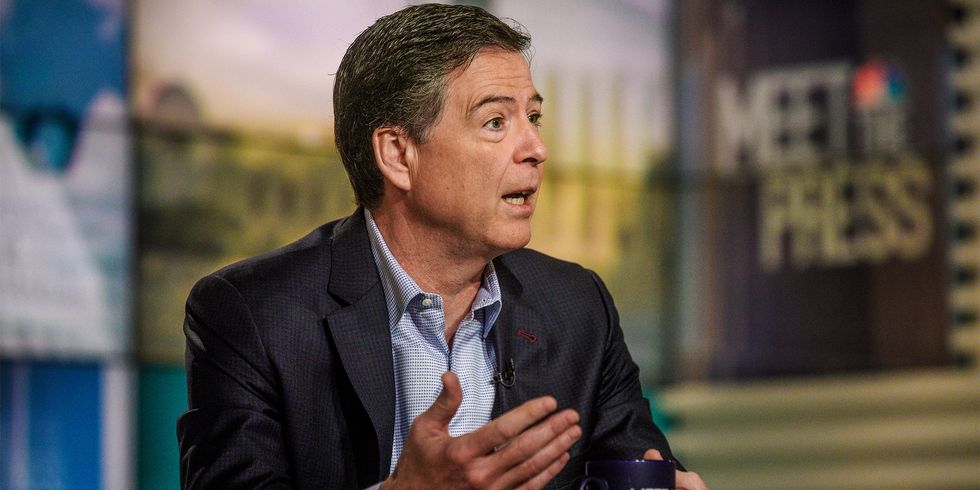 Getty Images
Getty Images
I feel very safe in saying that James Comey’s future paperback sales took a considerable nosedive on Thursday afternoon. The Department of Justice’s inspector general dropped The Last Honest Man from a very great height into a very deep well on Thursday.
The IG’s long-awaited report—which came on the same day that the Attorney General of New York filed suit against the Trump Foundation for breaking almost every charitable tax regulation and campaign finance law known to man or beast—excoriated Comey for what it called “insubordinate” and “extraordinary” bungling in his performance during the 2016 presidential election, citing what it called “ad hoc decision making based on his personal views even if it meant rejecting longstanding Department policy or practice.” The July press conference was a mistake. The October letter was a mistake. James Comey was the biggest mistake of all.
By all accounts—and I’ve only read a chunk of it at this point, plus the executive summary—IG Michael Horowitz is a straight-shooter who wrote an honest report. Which is undoubtedly why the executive branch is lying its ass off about the report, when it discusses it at all, after assuring the rubes that the report would undermine fatally every charge ever levied against El Caudillo del Mar-A-Lago and the alleged organized criminal conspiracy that was his entire public career, including his campaign and his entire presidency*. Oh, Rudy (A Noun, A Verb, and A Manic Episode) Giuliani is out there, behaving like the rodeo clown he has become. And the president* wandered out onto the White House lawn for some prevarication al fresco on Friday morning.
 Getty Images
Getty Images
But, by and large, the report’s most basic implicit conclusion—that Comey’s blundering at least played a role in installing the current administration*—is so clear and irrefutable that it seems that the president*’s defenders are caught between giving the report a good leaving alone and clumsily attempting to use its findings to discredit Robert Mueller’s investigation, a lie so stupendous that the president* couldn’t wait to use it Friday morning. From CNN:
“I think that the report yesterday … totally exonerates me. There was no collusion, there was no obstruction.”
In the long run, however, I don’t think they’re going to be able to peddle the whole notion that this report has anything to do with Robert Mueller’s investigation to anyone except the most devoted rubes in the base. Which is cold comfort, I admit. In fact, the only true rube-bait in the entire report seems to be the uncomplimentary texts between the two canoodling FBI agents Peter Strzok and Lisa Page.
The report makes plain one other thing—that the first thing that corrupted the 2016 presidential election, the first thing that infused into it the dark sense of unreality that was its defining characteristic, was the absurd importance placed on the email protocols of Hillary Rodham Clinton. The pursuit of a scandal without a crime—by the Republican Congress, by federal law enforcement, and by the elite political media—was a continuation of the absurd charges involving the tragic events at the American consulate in Benghazi, and the absurd attempts to turn the Clinton Foundation into what we now know that the Trump Foundation actually was: an organized effort to skirt federal tax regulations and campaign finance laws.
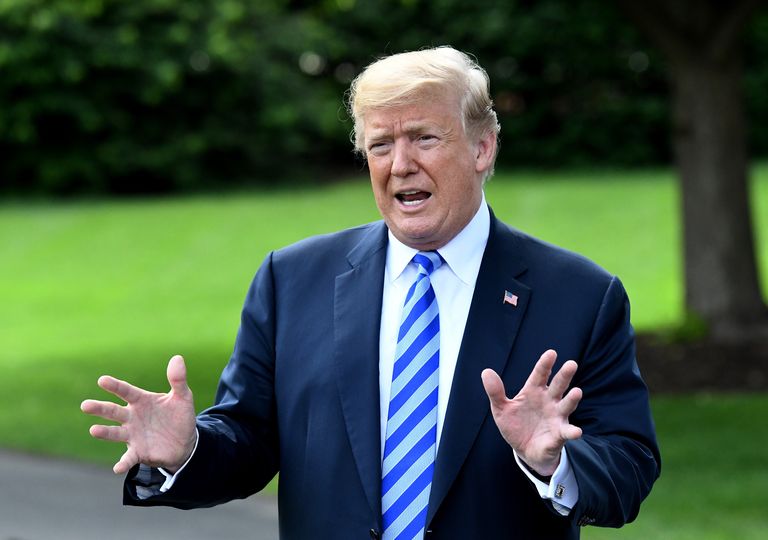 Getty Images
Getty Images
(Remember that both The New York Times and The Washington Post entered into business arrangements with Peter Schweitzer, the career conservative ratfcker, to publish the charges based on his spurious book, Clinton Cash, the place where the equally absurd Uranium One “scandal” was spawned. And this was two months before the president* had even launched his campaign.)
And all of this, it can be argued, was a continuation of the three-decade search for something, anything, to hang on the Clintons. Future historians are going to be gobsmacked when they study how a moderate-to-conservative Democratic president and his wife threw so much of official Washington into utter hysterics for three decades.
The 2016 campaign already was a surreal event before the president* descended into it on his gilded escalator. (It’s possible that, with his wolverine’s nose for profitable unreality, he sensed this instinctively, and that’s why he decided to get in on the action in the first place.) The whole year was full of events that didn’t make any sense at the time. For example, on January 28, 2016, shortly before the Iowa caucuses, the president* bailed on a Fox TV debate, announcing that he would, instead, hold a charity event “for our wonderful vets” across town.
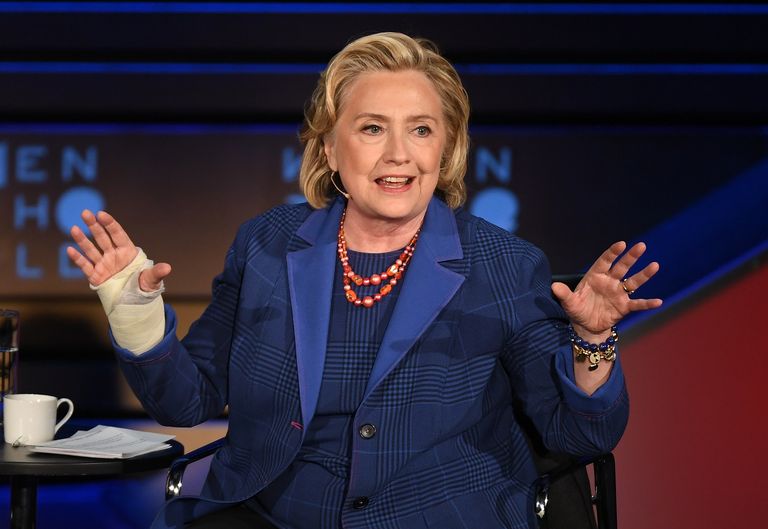 Getty Images
Getty Images
He brought a number of his aging plutocrat running buddies out to the event. Mike Huckabee and Rick Santorum showed up to be humiliated on stage. It was a campaign event badly disguised as a charitable fundraiser. Its whole affect was schizoid. And, on Thursday, as part of her lawsuit against the Trump Foundation, New York Attorney General Barbara Underwood pulled back the entire curtain:
“As our investigation reveals, the Trump Foundation was little more than a checkbook for payments from Mr. Trump or his businesses to nonprofits, regardless of their purpose or legality. This is not how private foundations should function and my office intends to hold the Foundation and its directors accountable for its misuse of charitable assets.”
And the Iowa event was a perfect example about how this three-card monte system worked. From The Des Moines Register:
“According to the petition, the event generated about $5.6 million in tax-free donations, and of that, $2.823 million was contributed to the Trump Foundation. The remainder was given directly by private donors to veterans’ charity groups and was not funneled through the foundation. The lawsuit says that after the fundraiser, the Trump Foundation “ceded control over the charitable funds it raised to senior Trump campaign staff, who dictated the manner in which the Foundation would disburse those proceeds, directing the timing, amounts and recipients of the grants.” In the days after the Des Moines fundraiser, Trump toured the state for a series of campaign rallies at which he handed out oversized $100,000 checks to various charity organizations.”
“Doing so “provided Mr. Trump and the campaign a means to take credit at campaign rallies, press briefings, and on the Internet, for gifts to veterans charities. The foundation’s grants made Mr. Trump and the campaign look charitable and increased the candidate’s profile to Republican primary voters and among important constituent groups,” the lawsuit says. All of that amounts to an improper in-kind contribution worth $2.823 million from the foundation to the campaign, according to the lawsuit. “In addition, at Mr. Trump’s behest, the Trump Foundation illegally provided extensive support to his 2016 presidential campaign by using the Trump Foundation’s name and funds it raised from the public to promote his campaign for presidency, including in the days before the Iowa nominating caucuses,” a release from the New York Attorney General’s office says.”
All of this was reported at the time by David Fahrenthold of The Washington Post, who eventually won a Pulitzer Prize for his work. Yet, in the campaign coverage, the sense of unreality was virtually unshakable. A political campaign, functioning as an allegedly genuinely corrupt criminal enterprise, and aided and abetted by a seedy network of ratfckers and bagmen from across the pond, was forcing the American political establishment, and especially its elite political press, to cover it according to the rules that the criminal enterprise established for itself.
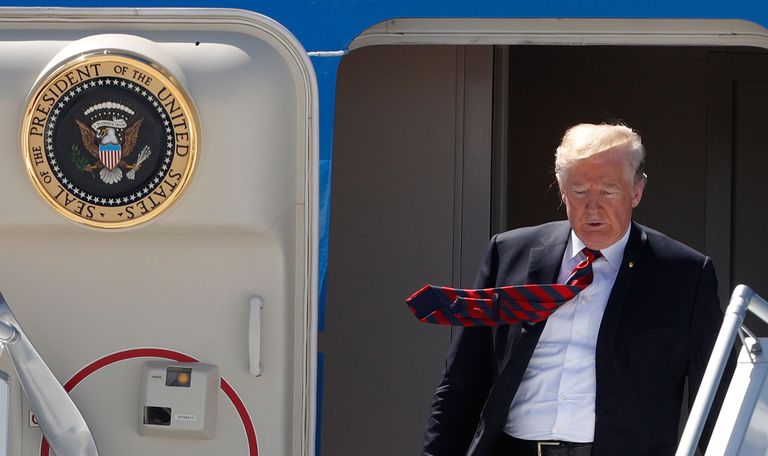 Getty Images
Getty Images
At the same time, on the other side of the race, the candidate was plagued by crises and “scandals” that proved time and again to be phantoms, and yet those phantoms were energized, time and again, from the very top of federal law enforcement. The whole campaign was conducted on a plane of malignant make-believe, and that came at an unsupportable cost.
Matthew Miller, whom we often see on the electric TV machine, flagged an important passage from the report that beautifully sums up how we elected a president in 2016. And this is what, finally, brings us back to saintly Jim Comey one more time. It is an e-mail from October 5, 2016 sent by Comey to James Clapper and John Brennan, the other two intelligence satraps who already were onto the evidence that Russian ratfckers and the Volga Bagmen were helping the Republican candidate. Apparently, there was some discussion of whether or not the country needed to know about this. (Spoiler: It did.) This is what Comey wrote:
“I think the window has closed on the opportunity for an official statement, with 4 weeks until a presidential election. I could be wrong (and frequently am) but Americans already ‘know’ the Russians are monkeying around on behalf of one candidate. Our ‘confirming’ it (1) adds little to the public mix, (2) begs difficult questions about both how we know that and what we are going to do about it, and (3) exposes us to serious accusations of launching our own ‘October surprise.'”
Not an entirely unwarranted concern, until you remember that, 23 days later, Comey wrote the letter to Congress, re-opening the email investigation because of the material found on Anthony Weiner’s laptop. This was the single most crucial moment in the campaign, and the IG report makes clear that Comey wrote the letter because he was afraid that the renegade agents in the New York FBI field office would leak the material anyway. (This is an aspect of the affair that the IG report hints at, but does not explore in any great depth.) In other words, Comey blew the investigation a second time over his fears of something that had not happened yet.
I don’t believe there’s ever been an American election in which so many people operated as though reality was too awful to contemplate and chose, instead, to chase ghosts and goblins of their own imagination. The 2016 presidential campaign was an extended dive into deep political madness. Nothing that’s happened since ever should have been a surprise.
Bill Roth/Anchorage Daily News/MCT via Getty Images
 Robert B. Gillam, CEO of McKinley Capital.
Robert B. Gillam, CEO of McKinley Capital.
 Getty Images
Getty Images Getty Images
Getty Images Getty Images
Getty Images Getty Images
Getty Images Getty Images
Getty Images Getty Images. Soybean farmers in Mississippi County, Arkansas.
Getty Images. Soybean farmers in Mississippi County, Arkansas.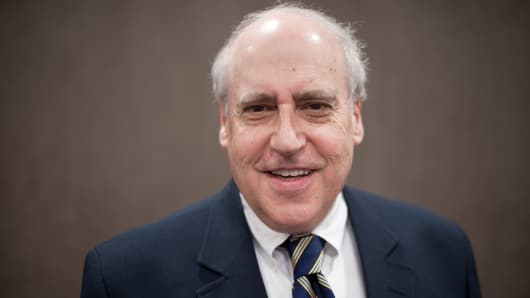 Former Agriculture Secretary Dan Glickman. Bill Clark | Roll Call | Getty Images
Former Agriculture Secretary Dan Glickman. Bill Clark | Roll Call | Getty Images Ethanol Plant in Rosholt, South Dakota. Credit: Myloupe/UIG via Getty Images
Ethanol Plant in Rosholt, South Dakota. Credit: Myloupe/UIG via Getty Images
